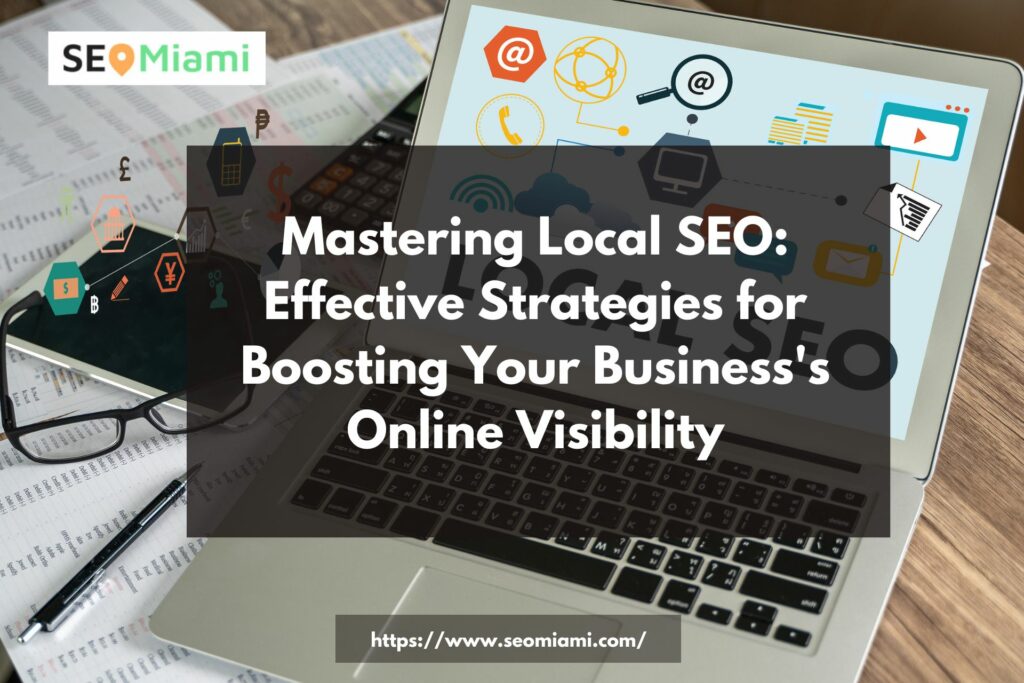In today’s digital age, having a strong online presence is crucial for businesses of all sizes. Whether you own a small local shop or a multinational corporation, optimizing your website for local search engine optimization (SEO) is essential. Local SEO helps you target potential customers in your area, drive relevant traffic to your website, and increase footfall to your physical store. In this article, we will explore a range of strategies for optimizing local SEO, providing you with actionable insights to enhance your business’s online visibility and reach.
Strategies for Optimizing Local SEO
Local SEO involves a series of techniques and practices that enable search engines to understand your business’s relevance to a specific geographical location. By implementing the following strategies, you can boost your local search rankings and attract more customers to your business.
1. Claim and Optimize Your Google My Business Listing
To kick-start your local SEO efforts, claiming and optimizing your Google My Business (GMB) listing is crucial. GMB is a free tool provided by Google that allows businesses to manage their online presence, including their appearance on Google Search and Google Maps. By claiming your GMB listing and ensuring accurate and up-to-date information, you can increase your chances of appearing in the local search results and the highly coveted “local pack.”
2. Conduct Local Keyword Research
Keyword research is an integral part of any SEO strategy, and it’s equally important for local SEO. To optimize your website for local searches, identify relevant keywords with local intent. For instance, if you run a bakery in New York City, target keywords like “best bakery in NYC” or “top-rated bakery near me.” Utilize keyword research tools to discover local search terms that align with your business offerings, and incorporate them naturally into your website content.
3. Create Location-Specific Landing Pages
If your business operates in multiple locations or serves various areas, consider creating location-specific landing pages. These pages can cater to the unique needs and interests of each local audience. Optimize each landing page with locally-relevant keywords, content, and testimonials from satisfied customers in that area. This approach demonstrates your business’s commitment to each location, enhancing your chances of ranking well in local searches.
4. Optimize On-Page Elements
When it comes to local SEO, optimizing on-page elements is crucial. Ensure that your website’s title tags, meta descriptions, headers, and content incorporate relevant local keywords. However, it’s important to maintain a natural flow and avoid keyword stuffing, as search engines prioritize user experience. Additionally, include your business’s name, address, and phone number (NAP) on every page of your website, as consistent NAP information helps search engines associate your business with a specific location.
5. Obtain High-Quality Local Citations
Local citations refer to online mentions of your business’s NAP information on directories, review sites, and other platforms. These citations play a crucial role in local SEO, as they validate your business’s existence and location. Aim to obtain high-quality citations from authoritative and relevant websites in your industry. Ensure that your NAP information is consistent across all platforms, as any discrepancies can confuse search engines and negatively impact your local search rankings.
6. Encourage Online Reviews
Online reviews not only influence potential customers but also impact local search rankings. Positive reviews can boost your business’s credibility and attract more customers, while a lack of reviews or negative feedback may deter prospects. Encourage satisfied customers to leave reviews on platforms like Google My Business, Yelp, and industry-specific directories. Responding to reviews, both positive and negative, shows your commitment to customer satisfaction and engagement.
Frequently Asked Questions (FAQs)
How long does it take to see results from local SEO strategies?
Local SEO is an ongoing process, and the timeline for seeing results may vary. While some businesses may notice improvements within a few weeks, others may take several months to witness significant changes. Consistency and patience are key to achieving long-term success with local SEO.
The time it takes to see results from local SEO strategies depends on various factors such as competition, website authority, and the effectiveness of your optimization efforts. It’s important to monitor your progress regularly and make necessary adjustments along the way.
Are online directories still relevant for local SEO?
Yes, online directories are still relevant for local SEO. They provide valuable citations and backlinks to your website, helping search engines understand your business’s location and relevance. However, focus on quality directories that are reputable and relevant to your industry, rather than simply pursuing quantity.
While directories can be beneficial for local SEO, it’s essential to prioritize quality over quantity. Choose directories that are reputable, relevant, and have a strong online presence. Additionally, ensure that your NAP information is accurate and consistent across all directories.
